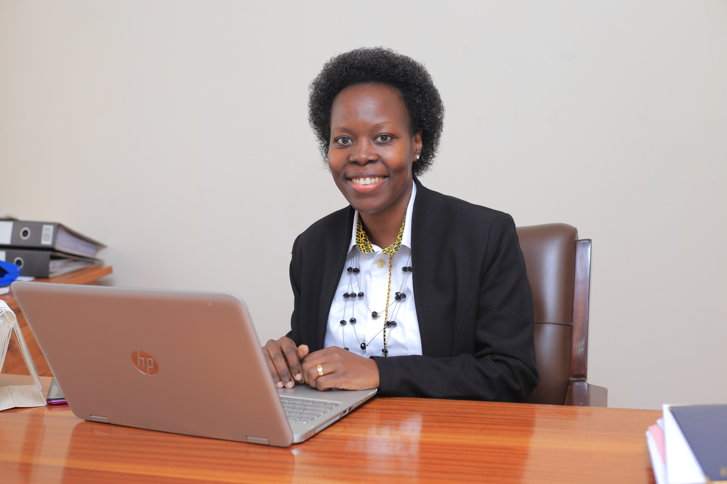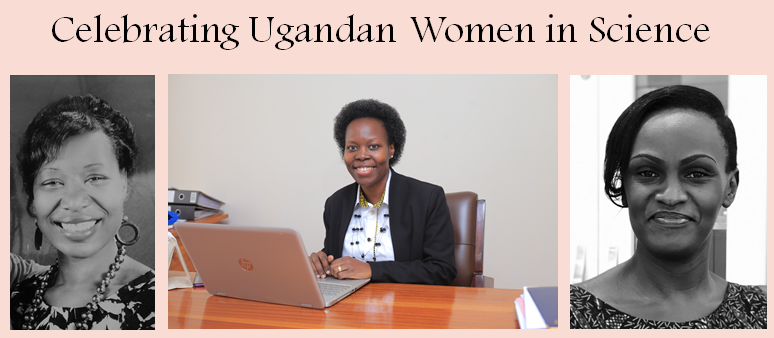As part of the Women's Day celebration in 2021, we have chosen to showcase how Sweden's support to research in Uganda has helped to facilitate women involved in academia. Sweden has supported women in Science in Uganda from 2000 and during the current agreement (2015-2022) a total of 146 women have received support including 19 at postdoc level, 50 at PhD level, 73 at Masters level and 4 receiving small research grants. We recently spoke to Martha Kyoshaba who has recently defended her Doctoral thesis about her research and her views on the challenges women face while working in higher education. Here is what she had to share with us.

What is the title of your PhD Thesis and what problem were you researching?
My research is on the topic "Examining Student Satisfaction in Universities in Uganda using the European Customer Satisfaction Index (ECSI) Model".
I identified the challenge of persistent student strikes in universities in Uganda which could be an indication of student dissatisfaction. Previous research attributed the strikes to many reasons, one being a mismatch between student expectations and the experience they get while at university. A number of studies had indicated that student satisfaction may lead to student loyalty, high student completion rates as well as boosting the images of universities.
What are some of the key outcomes of your research?
My key outcome was that the ECSI model offered a good explanation for student satisfaction in the context of universities in Uganda. In particular I found that:
1. Student satisfaction depended on university image, student expectations, quality of academic and non-academic staff and the processes of service delivery and value of investment as perceived by a student.
2. Student satisfaction influenced student loyalty and student loyalty depended on university image and quality of academic and non-academic staff and the processes of service delivery.
In order to enhance student satisfaction in universities in Uganda, I recommended the following:
- That university management should allocate resources to improve their university's image, student expectations, quality of staff in a university and the processes of service delivery and value of investment in order to enhance student satisfaction.
- In particular, they should deliver to students what they promise, recruit and retain qualified staff and carry out continuous training of staff on service delivery. The services universities offer to students should be commensurate to the fees that they charge.
What next now that your PhD is almost done?
The PhD has given me an added advantage in my current position as an Academic Registrar of a public university because I work with academic staff who are PhD holders. It has also sharpened my understanding of service delivery to students.
I plan to continue research and publishing in the area of educational management now that I have acquired research skills. I also plan to share my skills with students by teaching in the education management masters’ class.
As a woman in an academic institution, what challenges are you facing?
The main challenge is multi-tasking. There are many responsibilities I hold as a woman, a team leader of a department of 17 staff, a wife and a mother. I have been a PhD student, juggling all these responsibilities has not been a simple task. It does take commitment, determination and discipline.
The Government of Uganda has created an atmosphere where we women can exercise our rights, so as long as a woman has a strong will, the challenges posed by the work environment can be overcome.
What do you think needs to be done to get more women in leadership positions in academic institutions, especially at the research level?
I believe the issue of funding women in higher education is a challenge. In order to get more women into leadership positions in higher education, they should be supported with funding opportunities.
Since women and men are called to compete on level ground for high positions in universities, the qualifications required are Master’s degree and PhD. Hence the need for more funding opportunities for women to enable them attain qualifications to compete in higher positions.
I am one of the few women who has benefited from Sida funding for a PhD which in turn has made me competitive. I am very grateful.
